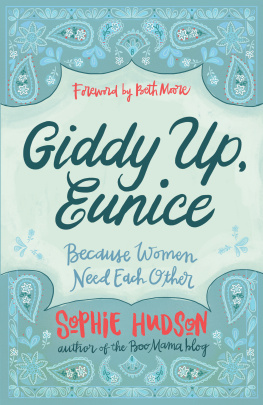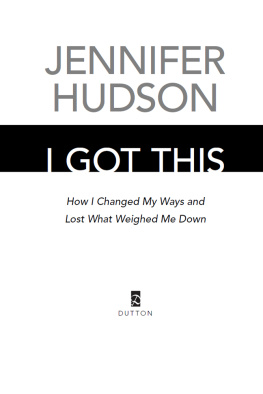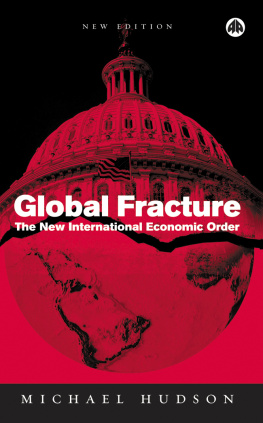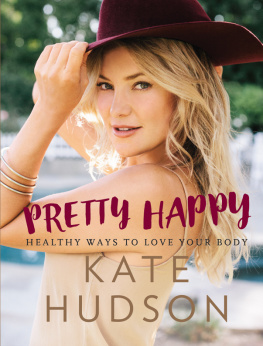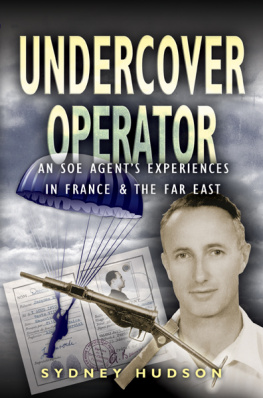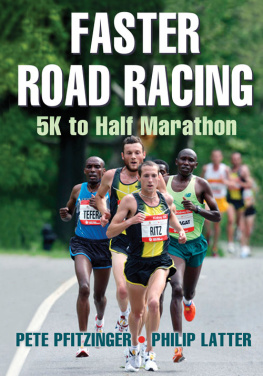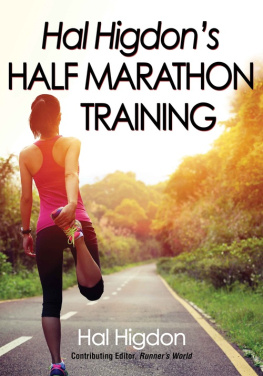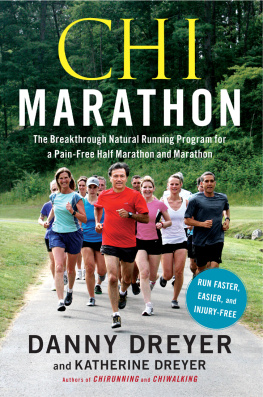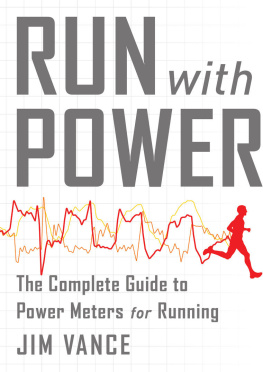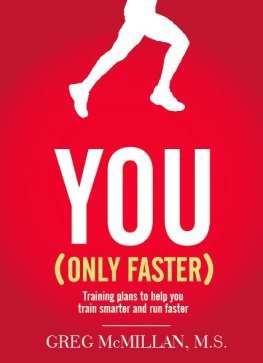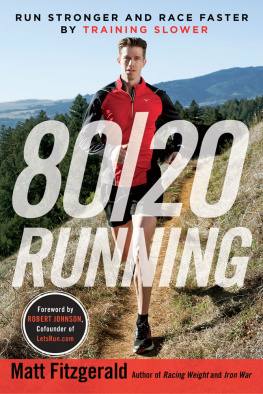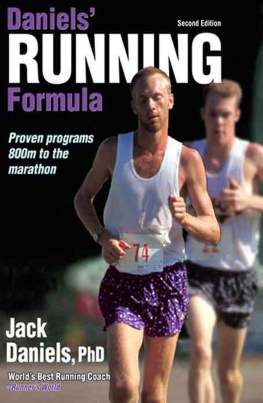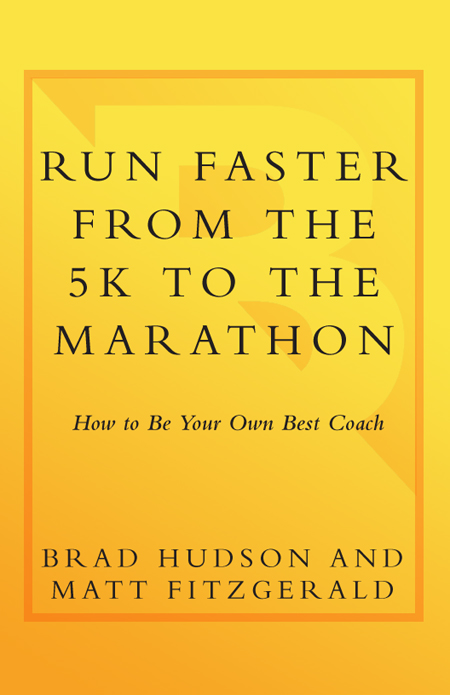
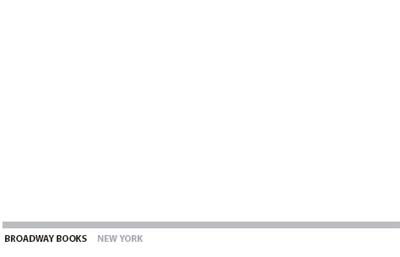
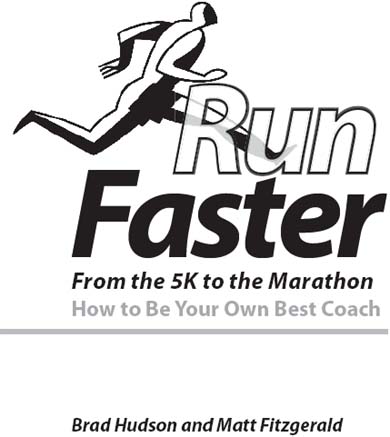
Contents
To the Athletes
Acknowledgments
Although only two names appear on the cover, this book wouldnt be what it is without vital contributions from the following people, to whom we offer our most heartfelt thanks: Jo Ankier, Jonathon Beverly, Nic Bideau, Bill Bowerman, Casey Burchill, Renato Canova, James Carney, Stacy Creamer, Alan Culpepper, Shayne Culpepper, Bill Dellinger, Donavon Guyot, Jason Hartmann, Lucinda Hull, Christy Johnson, Jeff Johnson, Weldon Johnson, Linda Konner, Megan Lewis, Kelly Liljeblad, Dathan Ritzenhein, Kalin Ritzenhein, Stephanie Rothstein, Victor Sailor, Sarah Schwald, Andy Smith, Sarah Toland, Edwardo Torres, Jorge Torres, Alison Wade, Toby Warden, Mark Wetmore, and Mary Wittenberg.
Foreword
Congratulations. By purchasing this book you are taking advantage of a remarkable opportunity: to learn not just to coach yourself but to coach yourself the way Brad Hudson would if you were a world-class runner under his care. What sets Brads program apart is its responsiveness to the individual. Rather than relying on cookie-cutter regimens with weeks of prescribed mileage and workouts set in stone, Brad sees how a runner is responding to the training before he decides what the next step should be. And now, armed with the information between these covers, youll be able to make similar assessments for yourself. The best runner is an educated runner.
Here at New York Road Runners we believe in changing the world for the better, and enriching and enhancing the lives of individuals of all ages and abilities through running. Our efforts range from organizing weekly local races for thousands of runners, to our NYRR Foundation programs, which currently bring running and fitness to more than forty thousand schoolchildren every day in New York City and beyond. We attempt to win people over to the benefits of runningperson by person. We know how good running is for people in so many ways. We also know the compelling satisfaction that improvement in running brings. I am happy for you that, with this book, you are on the road to such improvement and satisfaction.
Running is hard. No question about it. It gets easier as one gets fitter, and it also gets to be more fun. This is true for all peoplefrom the very best in the world to the rest of us. The best in the world, like American star Dathan Ritzenhein, Central Park 10K record holder and member of the USA Olympic Marathon team headed to Beijing, are extra talented and work really hard, but they also have some advantages over mere mortals like the rest of us. Some have world-class coaches to support them in their efforts to get fitter and faster. Dathan and his teammates are especially fortunate. They have the benefit of the attention and effort of one of the smartest, hardest-working, most intense coaches in the business, a young man who learned by doing and studying. Coach Brad Hudson leaves no stone unturned in his quest to help his athletes thrive. Hes part engineer, part mathematician, part scientist, and part psychologist. Brad is one of those people who pours his heart and soul and mind into what he does. Lucky for our sport, Brad has chosen to coach long-distance running. Now, lucky for you, Brad has translated his learning and teachings into lessons and guidance for everyone.
I remember my first chat with Brad well. It was several years ago in a running store in Boulder, Colorado. I had heard much of this young legend in running, and the moment I met him, I was drawn in by his intense passion for coaching his athletes. I barely knew the guy, but he chewed my ear for an hour on the science of coaching and his expectations for Dathan Ritzenhein to ace the marathon at an early age. He was buoyed by the challenge of getting the then injury-prone Ritzenhein to the start line strong and healthy. Working with Dathan, Brad has now done that repeatedly.
Hes now taking the show on the road to your home. Good for you. Enjoy the read and the ride. Run smart and hard and enjoy the satisfaction of the journeyall the more satisfying with Brad.
I wish you the very best of luck with your training. And I hope well see you at a New York Road Runners race sometime soon.
Mary Wittenberg
President & CEO
New York Road Runners
Introduction: Every Runner Needs (to Be) a Coach
My life as a runner started with an amazing stroke of good luck. When I was 9 years old, I joined a newly created community running program called Run for Fun that was based in my New Jersey hometown. The coach of that program was Mark Wetmore, then a student at Rutgers University, who went on to become the legendary multiple national championshipwinning coach of the University of Colorado track and cross-country teams. Thats like a musically inclined third-grader taking his first piano lessons from a young Beethoven.
Running appealed to me right from the start, not only because I had a great coach but also because I liked the individual nature of running and because, well, I was really good at it. Back then I was still playing soccer, which was my first sport. One day at practice we ran a one-mile race and I finished second against a group of kids who were mostly two and three years older than I was. In that moment I realized I should probably leave the ball alone and focus on running, and thereafter I did.
At a very early point in my running life I became totally obsessed with the art and science of training, so I read every relevant piece of material I could get my hands onmagazines, training manuals, biographies and autobiographies, you name it. By age 13 I had read more about running than many college-level coaches have. At the same time, I was applying my rapidly growing pool of knowledge in training for road races, open track meets, and school events.
When I entered high school I started training even harder. I remember reading a book called How They Train, which detailed the workouts of the great high school runners of the 60s, like Gerry Lindgren. The one thing these guys all had in common was that they logged copious mileage, so I thought it was normal to run a lot. Before long I was running more than 100 miles a week myself.
In my junior year of high school I became an emancipated minormy own legal guardian. I took advantage of my independence to relocate across the country to the running mecca of Eugene, Oregon. By then I was the reigning New Jersey state champion in cross-country. The following year I became the Oregon state cross-country champion and finished third in the National Championship. These results were good enough to earn me a scholarship from the University of Oregon, where I became a two-time All-American in cross-country and track and field.
I ran professionally for ten years after college. My best marathon time was 2:13, which I achieved twice. I qualified for the Olympic Trials three times and won the Columbus Marathon on two occasions. While most competitive runners would be more than satisfied with such accomplishments, I believe I was capable of much more. As a teenager I was breaking national records, but at the elite level I never even qualified for an Olympic team. The problem was that I overtrained consistently for many years and wore my body down. I was also stubbornly self-reliant, hence uncoachable, and ignored a lot of good advice from others that could have helped me perform better.
Next page

